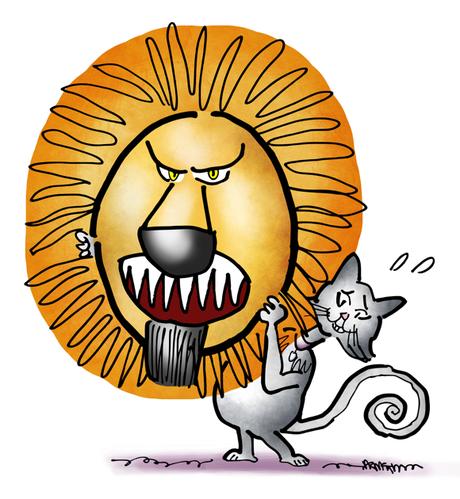 Like it or not, every brand has a personality. If you don’t choose it yourself, others will choose it for you, based on their impressions.
Like it or not, every brand has a personality. If you don’t choose it yourself, others will choose it for you, based on their impressions.
There are different ways to define brand personality.

There’s the academic approach:

Back in 1997, Stanford University marketing professor Jennifer Aaker identified 5 dimensions of brand personality: Sincerity, Excitement, Competence, Sophistication and Ruggedness.

You can break each dimension down into certain traits, and certain brands will come to mind:

Sincerity: wholesome, cheerful (Betty Crocker, Michelin Tires– think of the lovable “Michelin Man“)

Excitement: daring, spirited (Nike, Red Bull, Virgin Airlines)

Competence: reliable, intelligent (Allstate Insurance, Rolex Watches)

Sophistication: upper class, charming (Apple Computer, Dos Equis– think of “The Most Interesting Man In The World“)

Ruggedness: outdoorsy, tough (Brawny Towels, Harley-Davidson Motorcycles)

Which brand goes in which category is a matter of opinion. You could argue that some brands straddle categories— that Nike is both rugged and exciting, for example.

The funniest category placement I came across: the ImagiBrand blog put Charmin Toilet Paper in the Excitement category. Why? Because Charmin made a “daring leap” to change with the times: from its folksy Mr. Whipple commercials to Charmin Bears singing about their shiny hineys.

Clearly “excitement” is a matter of perspective… 🚽😊

The academic approach to brand personality is helpful, a good place to start, but there’s a problem: we’d like to believe we’re all those things– wholesome, cheerful, daring, spirited, charming, tough– kinda like Betty Crocker drinking Red Bull and riding a Harley-Davidson. (There’s an image for you!)

We’d like to think our brand is all those things, too.

So we need a more practical definition of brand personality. I like how Steve Harvey of Fabrik Brands defines it:

(Brand) personality is the… unique element that… makes it easier for you to create … relationships, rather than just (sales). For a personality to be effective, it needs to be memorable, and generate positive associations for your product or service.

Unique, memorable (my emphases): you need to be different, you need to find a way to make people remember you.
Mr. Harvey goes on to say:

Whether we realize it or not, (we’re) constantly making assumptions about brands. (We figure out) whether a brand is suitable for us… by attributing specific characteristics to it, and (deciding) whether we reflect its (personality) traits…

Can you sit down with a blank piece of paper and think your way to a brand personality?

I doubt it. You do have to think about it, but it’s going to come into focus as you define your target audience– the people you’re selling to. When you know what they need and what makes them tick, you’ll be able to relate to them– and that’s a huge part of personality, both brand and human.

Which brings us to brand voice.
Sometimes you hear brand voice defined in terms of a sliding scale: are you folksy or formal or somewhere in between?

Not particularly helpful, in my opinion.

I like what marketing consultant Erika Heald says about brand voice. She sees it as a matter of consistency: if your logo didn’t appear on your content, could your audience still recognize it as coming from your brand? Could they hear your voice?
Or would a lot of it sound much like your competitors?
Your brand voice needs to be consistent, because you’re trying to position yourself as an easily identifiable and authoritative source for your area of expertise.
Michael Brenner, CEO of Marketing Insider Group, adds that your brand voice also needs to be likable. Being likable helps your audience relate to you, and makes them more likely to engage with and trust your brand.
A few closing thoughts:

► Brand personality is more effective than brand talk.
People like to come to their own conclusions about the brands that they do business with. That’s why establishing a personality is often more effective than simply telling people what you want them to think about you.

► The keys to a successful brand personality: Be unique, be consistent, be likable.
► So where does “Be yourself” come in?

Sounds like a contradiction, and maybe it is. I saved it for last because it’s my own opinion.

Consider: most brands are small brands, and many of us, myself included, work alone.

(According to the Census Bureau, the share of U.S. businesses with 20 or fewer workers was 98% in 2016, and there were 24.8 million non-employer businesses ( = individual proprietorships), compared to 5.6 million employer firms.)

A small business or self-employed person can’t manufacture a
false personae and maintain it over the long term. You need to be yourself: it’s an essential part of being unique, and being consistent.


